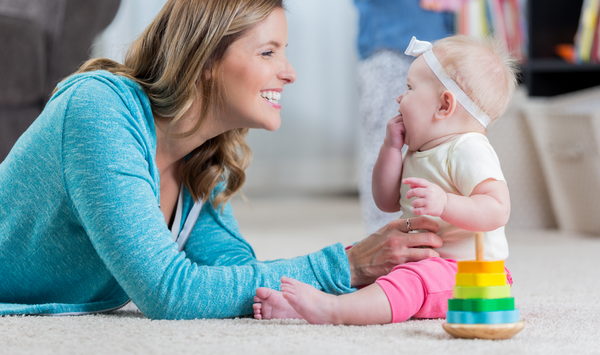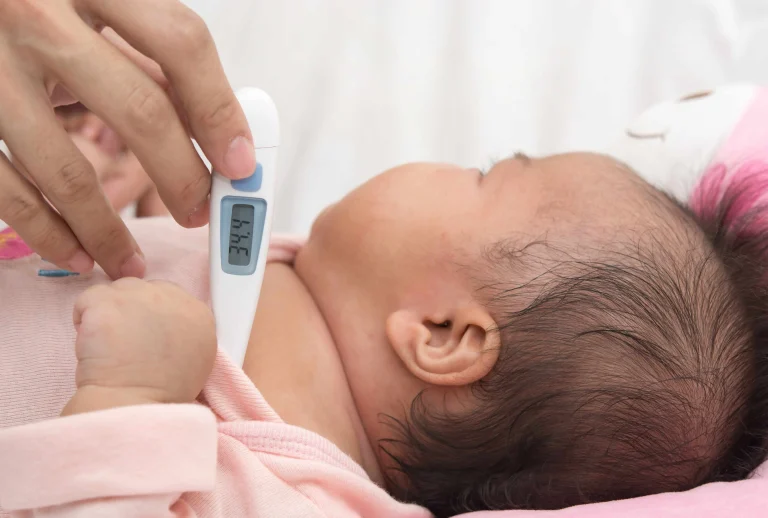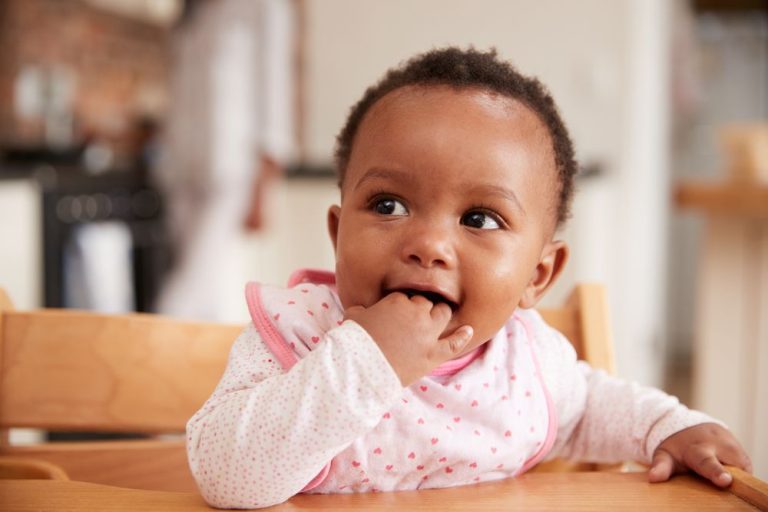When Do Babies Start Talking? Exploring Baby Language Milestones

Discover when babies start talking and their language milestones. Learn how to support their language journey in this insightful exploration.
When Do Babies Start Talking: Language Milestones In Infants
Introduction:
Babies go through unique stages in learning to talk. From their first sounds to forming sentences, it’s a growth journey. As parents and caregivers, knowing these phases helps babies. In this blog, we’ll look at these stages, what affects them, and how adults help babies talk. Join us on this exciting journey through baby language and celebrate each child’s unique adventure.
When Do Babies Start to Talk?
Babies usually begin to talk and develop their language skills between the ages of 10 to 14 months. But remember, every baby is different, so some might start a little earlier or later than this.
Phases of Language Development:
1. Cooing and Babbling (0-6 months):
Right from birth, babies start making sounds. Those adorable cooing and gurgling sounds are like their first communication attempts. These sounds seem random, but they’re laying the groundwork for language development. Around three months, babies get more advanced and start babbling. It is when they repeat sounds like “ba-ba” or “goo-goo.” It’s like their way of practicing different sounds.
2. Gestures and Non-Verbal Communication (6-9 months):
As babies grow, they start figuring out that they can use their hands and body to tell you things. They might point at something they want, wave their hands, or even clap. It’s like their own form of sign language before they can use words. This phase shows they’re learning to show you what they want or like without using words.
3. First Words (10-14 months):
It is when you might hear those magical first words. Babies start saying simple words like “mama,” “dada,” or the names of things they know well. These words might need to be clearer initially, but they’re a massive step because they’re trying to put meaning to the sounds they’ve heard. And those first words are a big deal for babies and their families!
4. Vocabulary Expansion (18-24 months):
Around 18 months, you may notice a significant jump in your vocabulary. They start picking up words from everything around them – from conversations to books to what they see. They’re like little language sponges, absorbing new words all the time. Even though their sentences might still be short (like 2 or 3 words), they’re getting good at using those words to say what they want.
5. Combining Words and Basic Sentences (2-3 years):
As toddlers age, they combine words to make sentences. These sentences might still be simple, but they’re becoming little storytellers. They’re figuring out how to say who did something, what they did, and where it happened.
6. Language Refinement (3+ years):
Kids get even better at talking after three years. Their vocabulary keeps growing, and their sentences become more complex. They start using better grammar and even get jokes and humor. They’re getting closer to being able to express themselves like grown-ups.
Factors Affecting Language Development:
- Genetics:
Thanks to their genes, some kids have a natural talent for learning the language.
- Environment:
The world around a baby matters a lot. When children are surrounded by individuals who engage in frequent conversations and reading with them, it accelerates the development of their language proficiency.
- Interactions:
Babies learn from the people they’re around. It’s like giving their brains a workout when adults converse with them.
- Cognitive Development:
As babies’ thinking abilities improve, so does their language. It’s like as their brains grow, their words get smarter too.
- Hearing Ability:
Hearing is super essential for learning to talk. If a baby has trouble hearing, it can slow down their language development. It is crucial to detect hearing issues at an early stage.
What Helps Babies Learn to Talk?
- Talking to Them:
Just talking to babies helps them learn words and how to talk. Even though they might not respond in complete sentences, they’re still listening and learning from you.
- Playing and Reading:
Playing and reading with babies isn’t just fun – it’s a way to help their brains grow. It introduces them to new words, ideas, and concepts.
- Being Patient:
Learning to talk takes time. Some babies start earlier, and some take longer. Let each baby go at their own pace and give them the needed time.
Language Milestones and Concerns:
It’s good to know that all babies develop at their speed. If your baby is facing challenges in learning to speak or comprehend speech, it is advisable to consult a doctor or medical expert in baby development. They can help determine if there’s anything to be concerned about and offer tips to support your baby’s language journey.
Conclusion:
To sum up, babies start their path to talking with sounds and gestures. They say their first words around 10 to 14 months, and their vocabulary proliferates. They start putting words together to make sentences, and by age 3, they’re improving at expressing themselves. Talking, playing, and reading are excellent ways to help babies learn to speak. Remember, every baby’s journey is unique, and celebrating their progress is a beautiful adventure!






